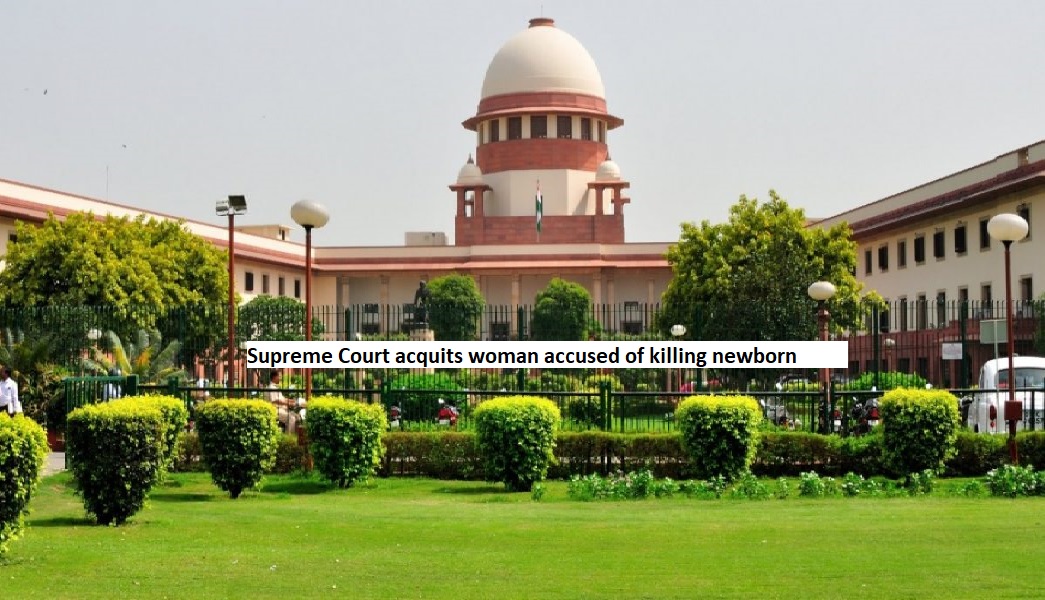


In a recent criminal appeal, the Supreme Court addressed a crucial legal question: whether a female defendant must reveal details about her private life during a trial.
The Court was reviewing an appeal from a woman convicted of murdering her own child, sentenced to life imprisonment.
In the context of Section 313 of the Code of Criminal Procedure, the Court emphasized that while there is a legal obligation to disclose necessary details in a criminal case, this duty must not unreasonably infringe upon the fundamental right to privacy.
A bench consisting of Justices Abhay S. Oka and Sanjay Karol addressed two key questions in the appeal:
"To what extent does the right to privacy protect the aspects of a female defendant's personal life in a criminal case, especially when the prosecution hasn't fulfilled its obligations?"
"What are the limits of the accused's rights and obligations to clarify incriminating circumstances against them in a statement under Section 313 of the Code of Criminal Procedure?"
In this case, the prosecution's argument was that the appellant, the convict, had a relationship with a fellow villager named Baiga Gond, leading to her pregnancy. After giving birth, she was accused of killing the child and disposing of the body in a small pond.
In the Section 313 CrPC statement, the accused acknowledged her pregnancy. The trial court, noting that the accused was living alone, drew additional conclusions from this admission and subsequently found her guilty of the child's murder.
The Supreme Court expressed strong reservations about the approach adopted by the trial court, a decision that was upheld by the High Court.
"Regrettably, the perspective and language used by both lower courts undermine the inherent rights of the convict-appellant. It is evident that her guilt was attributed without a substantial basis, as no connection of any kind could be established between her and the deceased child found in the pond."
In this context, the Court raised the following question:
"Does the convict-appellant not have the right to privacy when it comes to revealing the fate of her unborn child, especially when the prosecution failed to meet the initial burden of establishing any connection between the deceased child and the accused?"
"Can it be asserted that the convict-appellant was obligated to reveal her pregnancy and the fate of the child she was reportedly carrying? Is it not inherent in a woman the right to confidentiality and privacy regarding her personal life, with the discretion not to disclose circumstances as demanded by law?"
In response to the conclusions reached by both lower courts, the Supreme Court stated:
The conclusion is solely based on the fact that the convict-appellant was a woman living alone and had acknowledged her pregnancy in the statement under Section 313 of the CrPC. Such an approach, attributing the guilt of child murder to a woman without substantial evidence, merely because she resided alone in the village and linking two unrelated aspects, perpetuates cultural stereotypes and gender-based biases cautioned against by this Court.
The Bench of Justices Abhay S. Oka and Sanjay Karol expressed the opinion that the judgment being challenged contained only broad and vague remarks, rather than the meticulous assessment of evidence mandated by the law, particularly with regard to witness testimonies and other evidence. The Court further noted that such an approach is not acceptable, especially when the conviction pertains to a grave offense, namely, Section 302 of the IPC.
The Court summarized several principles regarding what might be expected from the convict-appellant in her statement under Section 313 of the Cr.P.C., drawing from a series of precedents. These principles included:
In such a statement, the accused has the discretion to admit or deny involvement in incriminating circumstances, provide an alternative account, or offer a different interpretation. The accused should not suffer prejudice due to omissions or inadequate questioning.
The right to remain silent, or providing an answer that may turn out to be false, should not be used against the accused as the sole reason for their detrim
TAGS: Section 313 Cr.P.C. Convict-appellant's statement Accused's discretion Admit or deny involvement Alternative version.